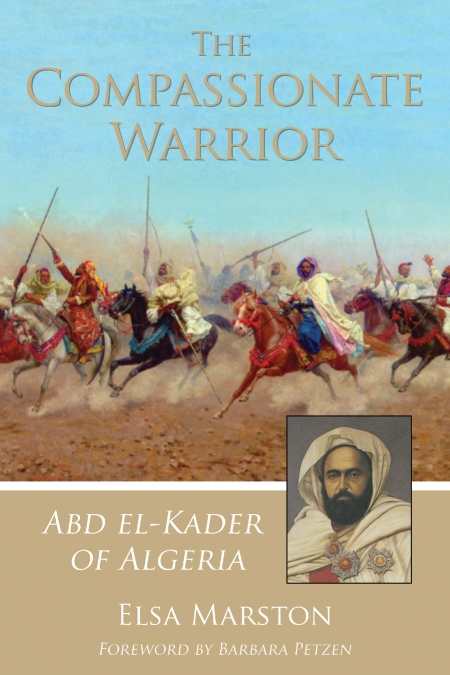The Compassionate Warrior
Abd el-Kader of Algeria
- 2013 INDIES Finalist
- Finalist, Young Adult Nonfiction (Children's)
Author brings back to life an Algerian hero in both war and peace.
Famed in the mid-19th century as “The Desert Hawk,” Abd el-Kader was renowned as a warrior, mystic, and leader of the fight to free Algeria from French invaders. Elsa Marston has spent a few years researching this Muslim hero, a towering figure who earned laurels from friends and foes alike, and whose greatest accomplishment came not on the battlefields of his homeland, but later, while in exile, in saving thousands of Christian refugees during an outbreak of violence in Syria.
For that service and for the kindness and civility he showed to captured French soldiers in Algeria, Abd el-Kader has been dubbed by Marston as a “compassionate warrior.” Obviously smitten with her subject, Marston presents his life as a great romantic adventure, and writes in a flowery, flowing style that harkens back to a bygone era in literature. Featuring lavish illustrations with photos and portraits, Marston’s lively twelve-chapter biography is enhanced with notes, a glossary, and a timeline of Abd el-Kader’s life. While simple and aimed at a middle-school audience, the prose is lively, colorful and at times quite exciting. It befits the subject, a dashing nineteenth-century hero who rode about the desert, robes flowing in the wind, and sword flashing in the sun.
Marston’s book is unabashed hero worship, and hero worship writ large. Both the author and Barbara Petzen, who provides the foreword, make no effort to hide their admiration for Abd el-Kader, whom Petzen describes as “a true Muslim hero, a man who combined the best qualities of a freedom fighter and a peacemaker.” By setting aside all pretense of objectivity, Marston at least is being honest with her audience as she follows through on her mission to “encourage positive awareness of Islam” and to present a book “for young people” that will “convey a positive view of Islam.” To that end, she asks rhetorically: “What more dramatic and inspiring example than Abd el-Kader?”
Marston answers her own question many times over. With great verve and enthusiasm, she presents her hero’s many accomplishments and exploits. She has little good to say of the French colonial invaders and the rape, plunder, murder, and betrayal that marked their imperial ambitions, but Marston does pick out those (admittedly few) Frenchmen who tried to make the conquest of Algeria less brutal and who in some instances became friends of “The Compassionate Warrior.”
Marston also explores the history, culture and religion of Algeria and how it shaped and was shaped by Abd el-Kader. The book, however, is not limited to his days fighting for his homeland. Defeated by more numerous, more disciplined and technologically superior forces, Abd el-Kader was forced to surrender and accept exile, first in France, later in Ottoman Turkey and finally in Syria. It is in these chapters that the author presents the most in-depth view of her hero, who rather than living out his final days as a bitter exile instead grows into a man of letters and a rare voice for religious tolerance and compassion for the victims of war and violence. It is in these chapters that the true, genuine hero Marston fell in love with emerges, and it is here that she accomplishes what she set out to do.
Reviewed by
Mark McLaughlin
Disclosure: This article is not an endorsement, but a review. The publisher of this book provided free copies of the book and paid a small fee to have their book reviewed by a professional reviewer. Foreword Reviews and Clarion Reviews make no guarantee that the publisher will receive a positive review. Foreword Magazine, Inc. is disclosing this in accordance with the Federal Trade Commission’s 16 CFR, Part 255.

